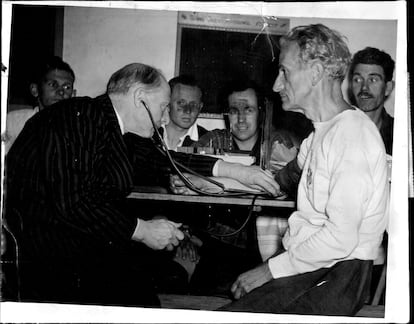Movement is life: Why Forrest Gump ran
Exercise is important for body and soul, and we are at a key moment for ‘physical literacy’ in the population

A Post Office employee whose life was stressful and unsatisfying, Percy Cerutty was told during a routine medical check-up that his health was very poor and he needed to radically change his life.
Cerutty (1895-1975) may not be a familiar name to you, but he became one of Australia’s greatest middle and long-distance track and field coaches in the 1950-1960s. He made the prescribed change, educating himself about how to lead a healthier life. He changed how he ate, trained his strength, ran long distances on different terrains, and established a personal philosophy that was both spartan and stoic in nature. Cerutty saw any space as an invitation to move and therefore to improve oneself.
Exercise is of fundamental importance to human health, something that has become especially clear during the Covid-19 pandemic and its privations.
“We exist by happening,” as the psychologist Guy Claxton puts it. “If we don’t do things, we don’t survive.”
In the beginning was the movement, and from birth to old age, we are marked by everything we have done or have not done throughout our life journey. What’s more, we think better when we move and are on the move; therefore, it is never too late to adopt an active and healthy lifestyle. A walk in the park or the mountains, riding a bike, dancing, swimming in the pool or playing our favorite sport is always a good excuse to be active.
The World Health Organization (WHO) says we need to undertake 150 to 300 minutes of moderate aerobic physical exercise or 75 minutes of intense exercise per week, combined with two days of strength training, while trying to reduce sedentary activity as much as possible.
With these recommendations, we can start acting on them — little by little, day by day.
Physical literacy and the paradox of exercise
Evolutionary biologist David Liebermann describes exercise as a paradox where something that we never evolved for is healthy for us. Exercise is a response to a need (“wanting to exercise”), and can become rewarding (“no pain no gain”).
The need for exercise and movement is much more pronounced at school age, where students too often get the message that being seated behind a desk is the most important thing to do. Our schoolchildren spend five to seven hours sitting each day, which is insufficient for meeting the WHO recommendations.
We urgently need more physical literacy, where physical education plays a fundamental role in schooling, with solid programs of physical activity. We have made little progress since 1900, when physical education entered the curriculum as a means of having the population exercise and prevent weight gain and other problems that come from moving less, including spinal problems.
Today we know the benefits of physical exercise in childhood, but there are still those who insist on promoting a sedentary life to our schoolchildren.
We are at a key moment for committing collectively to physical activity - meeting our responsibilities to maintain physical and mental health and refusing stigmas and myths about the body.
There are many examples in the built environment that encourage daily physical activity - such as the subway stairs in Germany, where climbing the stairs is encouraged by painting on them the lanes of an athletics track, or in Russia where 30 squats might get you free subway tickets. Small public programs like this provide a clear benefit for personal and collective health, resulting in more attractive spaces that allow not only moving or “moving through space,” but also daily routines of “moving over space.”
The Roman poet Juvenal said it in the first and second century AD: Mens sana in corpore sano - healthy mind, healthy body. On screen and much later, Forrest Gump would say, when asked why he had been running for more than two years, that, simply, “he felt like running.” Let us generate this feeling in the population, inspiring an active lifestyle that improves physical and mental health.
Tu suscripción se está usando en otro dispositivo
¿Quieres añadir otro usuario a tu suscripción?
Si continúas leyendo en este dispositivo, no se podrá leer en el otro.
FlechaTu suscripción se está usando en otro dispositivo y solo puedes acceder a EL PAÍS desde un dispositivo a la vez.
Si quieres compartir tu cuenta, cambia tu suscripción a la modalidad Premium, así podrás añadir otro usuario. Cada uno accederá con su propia cuenta de email, lo que os permitirá personalizar vuestra experiencia en EL PAÍS.
¿Tienes una suscripción de empresa? Accede aquí para contratar más cuentas.
En el caso de no saber quién está usando tu cuenta, te recomendamos cambiar tu contraseña aquí.
Si decides continuar compartiendo tu cuenta, este mensaje se mostrará en tu dispositivo y en el de la otra persona que está usando tu cuenta de forma indefinida, afectando a tu experiencia de lectura. Puedes consultar aquí los términos y condiciones de la suscripción digital.









































